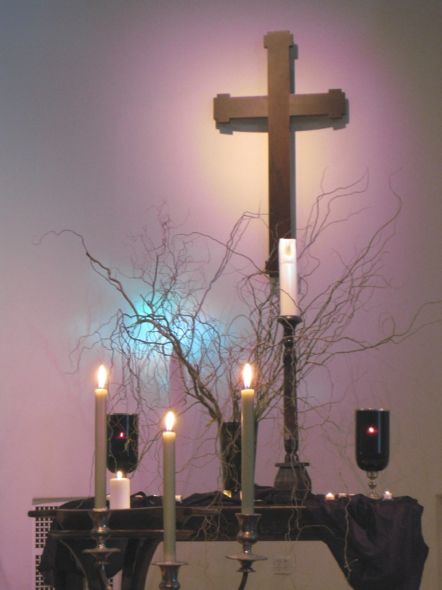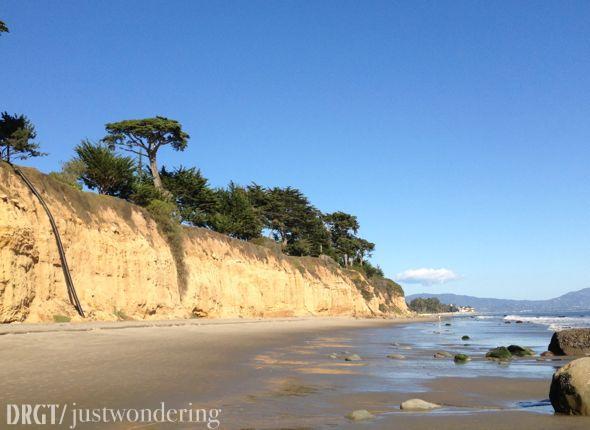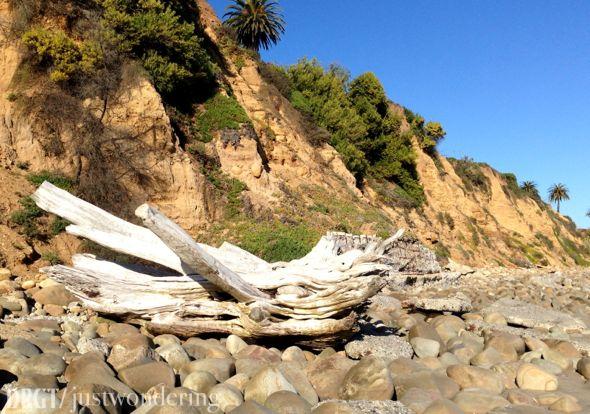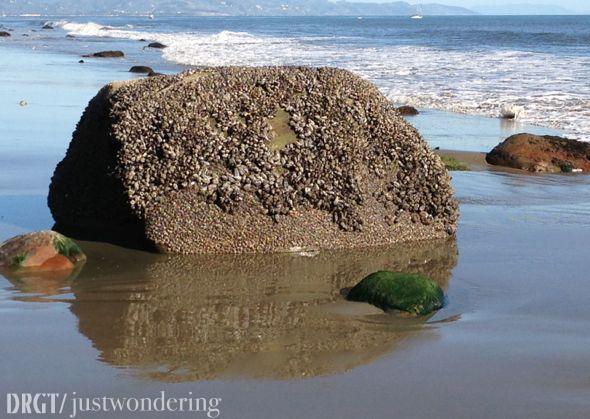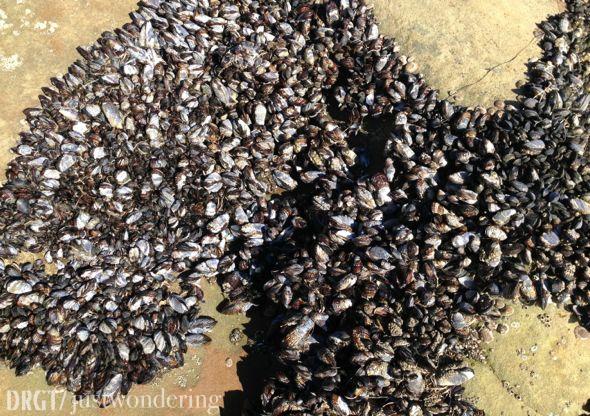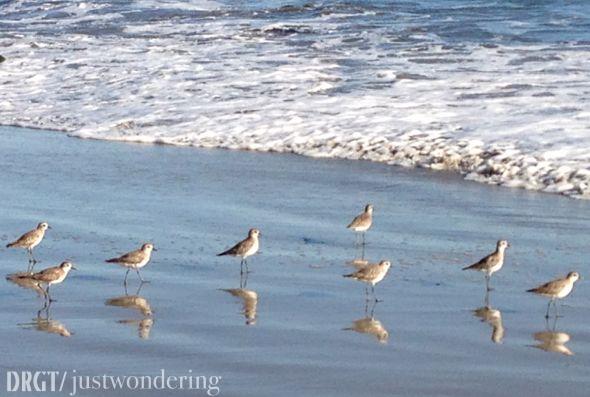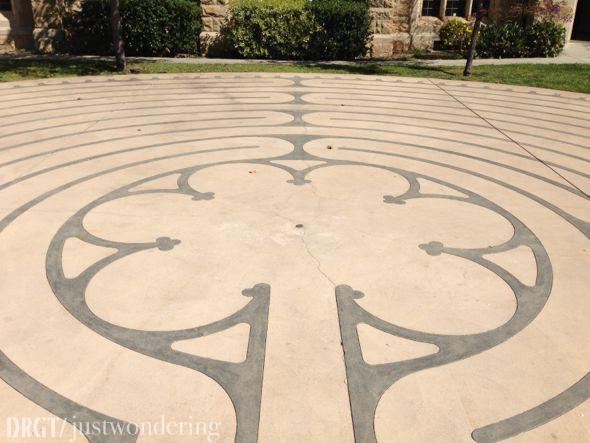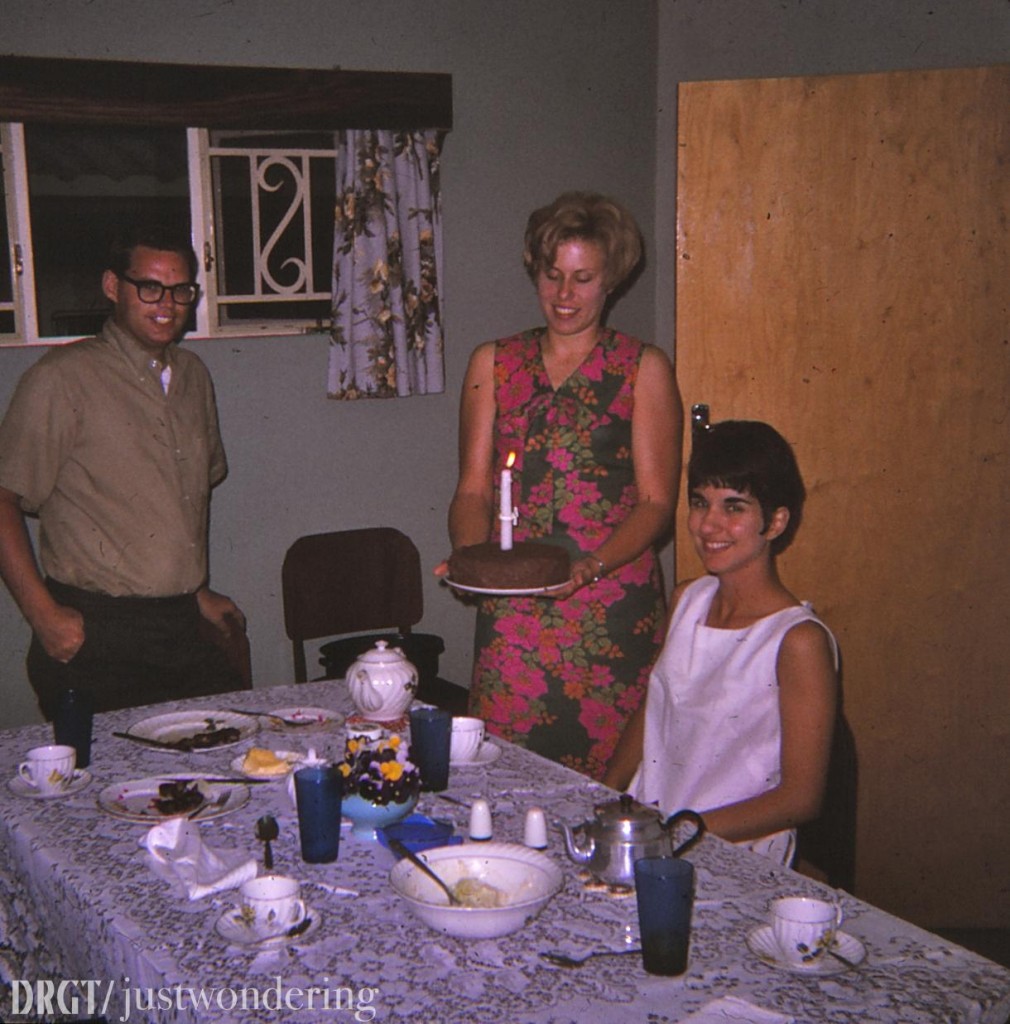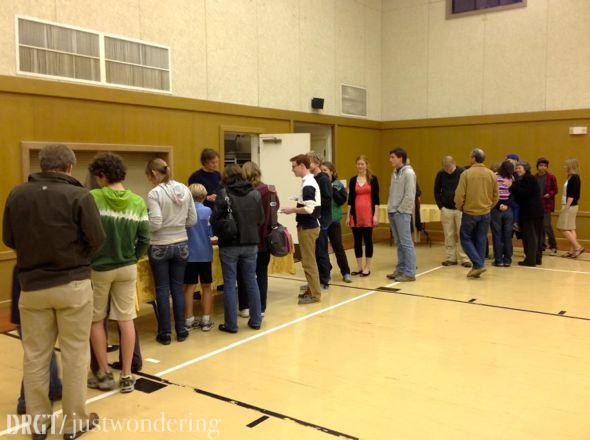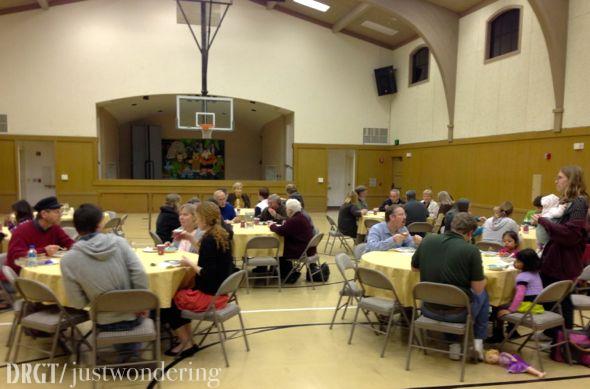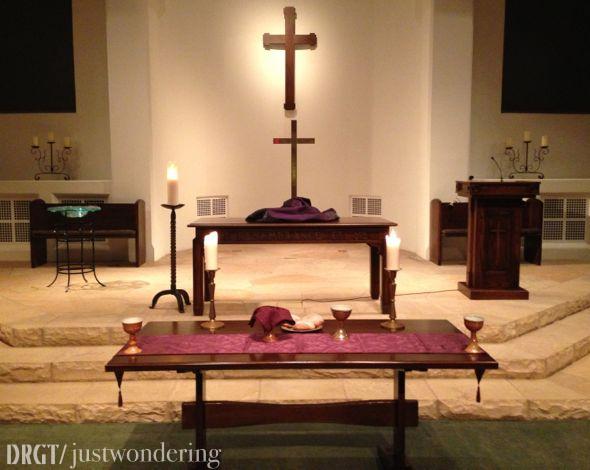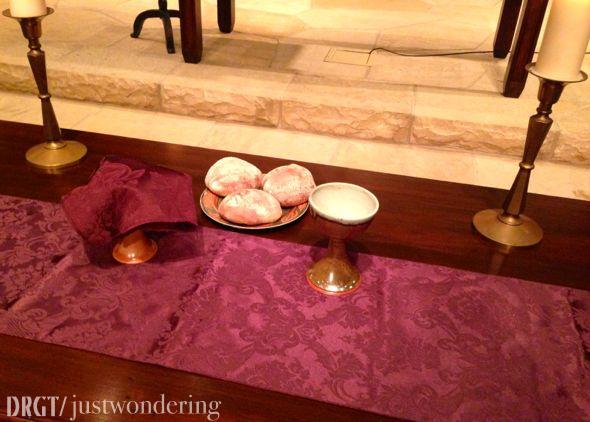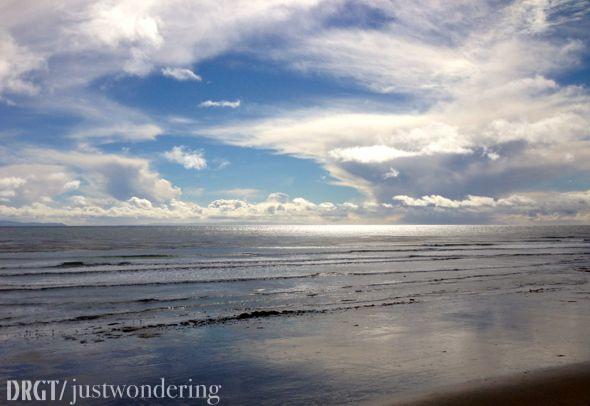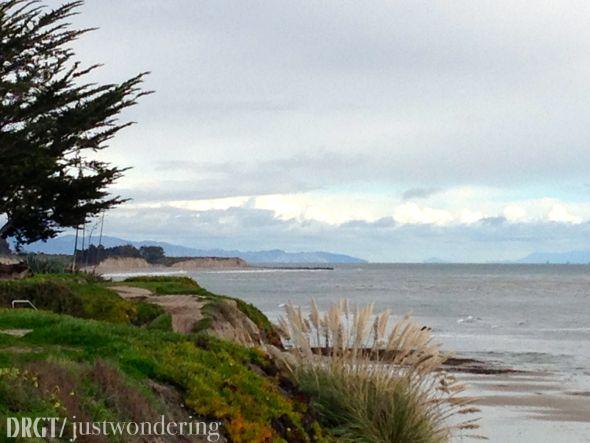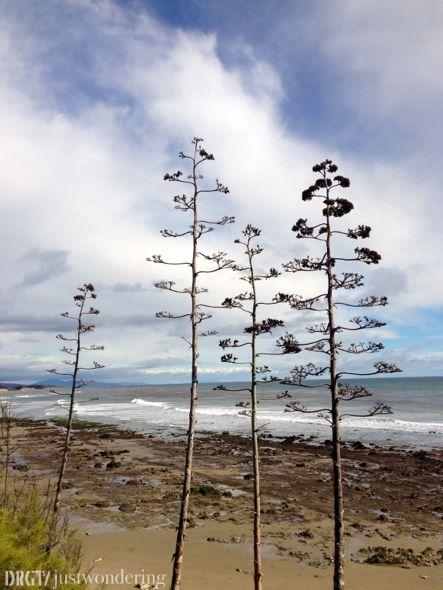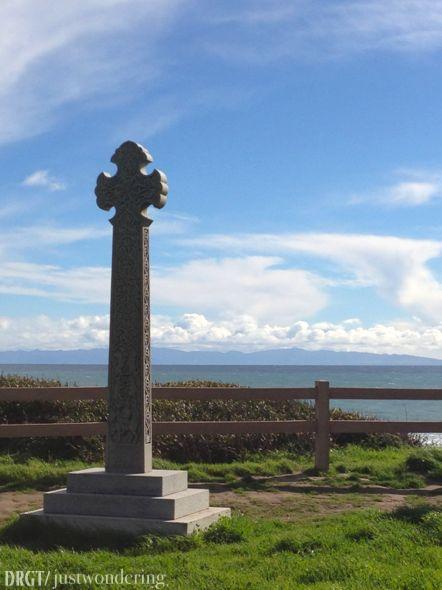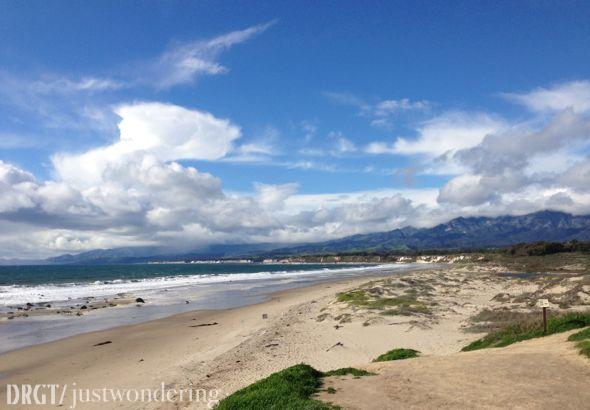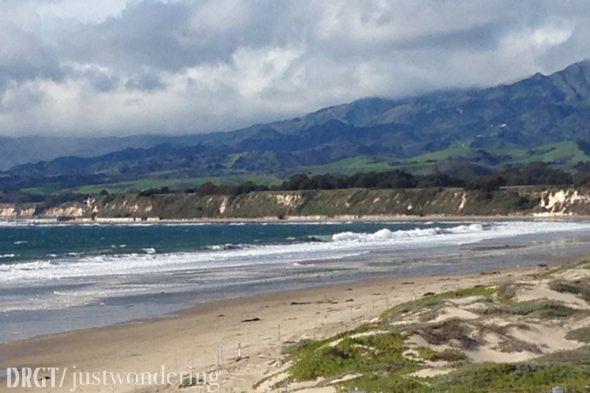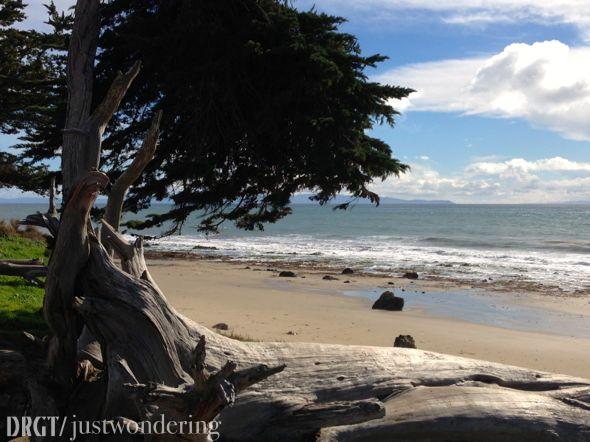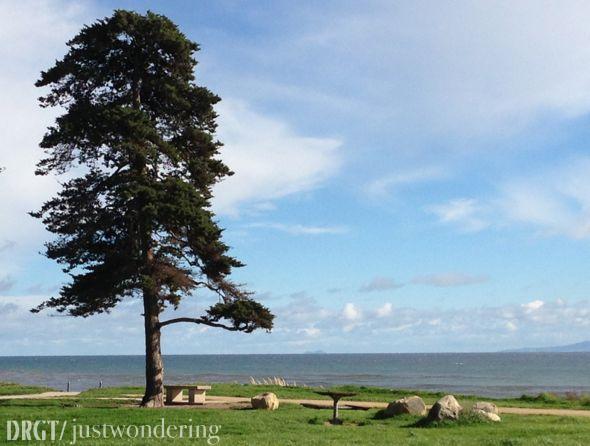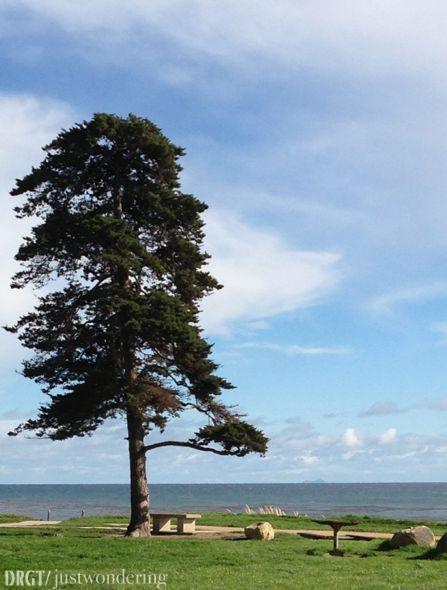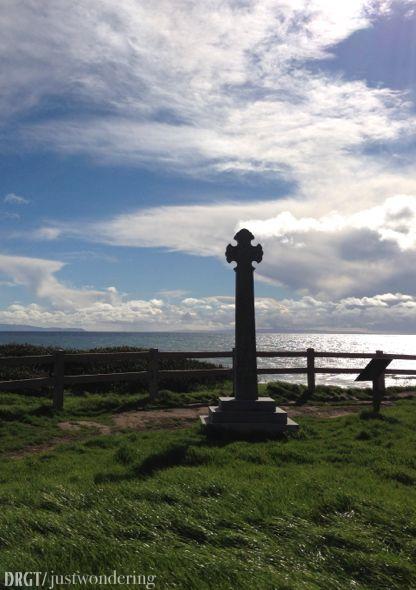Scandalous, Extravagant Love
a sermon preached at Montecito Covenant Church
Sunday, March 17, 2013
by Diana R.G. Trautwein
We’ve heard the word of the Lord from the prophet Isaiah and the apostle Paul. Now it’s time to hear it from John. Today, I invite all who are able, to stand for the reading of the gospel. And though I do encourage you to turn to chapter 12 in your pew Bibles, or in the Bibles you’ve brought with you today, I’d like to ask that you listen to it now. I’ll be reading from The New Living Translation.
Hear the good news from John 12:1-8:
Six days before the Passover celebration began, Jesus arrived in Bethany, the
home of Lazarus—the man he had raised from the dead. A dinner was prepared
in Jesus’ honor. Martha served, and Lazarus was among those who ate with him.
Then Mary took a twelve-ounce jar of expensive perfume made from essence of
nard, and she anointed Jesus’ feet with it, wiping his feet with her hair. The house
was filled with the fragrance. But Judas Iscariot, the disciple who would soon
betray him, said, “That perfume was worth a year’s wages. It should have been
sold and the money given to the poor.” Not that he cared for the poor — he was
a thief, and since he was in charge of the disciples’ money, he often stole some
for himself. Jesus replied, “Leave her alone. She did this in preparation for my
burial. You will always have the poor among you, but you will not always have me.
The gospel of the Lord.
You may be seated.
I don’t know whether it’s the arrival of daylight saving’s time or the early beginning date for Ash Wednesday, but somehow, Lent seems to be flying by this year. I don’t often say that, you know. Lent sometimes feels endless to me, six long weeks of plodding my way through the wilderness, of not singing, ‘hallelujahs,’ of giving something up or adding something on, of getting ready for the events of Holy Week. But here we are: one week from Palm Sunday, on our calendars — only one day away on John’s.
This little vignette happens just before the triumphal entry into the city of Jerusalem. And Jesus is deliberately not in the city. Because at the end of the preceding chapter — the one in which Jesus commands Lazarus to, ‘come out!’ from the tomb, four days after the man died — there is a lot of buzz going on about him, and about Lazarus, too.
There were a lot of witnesses to this miraculous stripping away of the bonds of death from Jesus’ friend Lazarus. All those who came to help the sisters mourn — who were with Mary and Martha when their brother died — they saw what happened. And they were blown away by it. Many of them followed after Jesus — John tells us that they ‘put their faith in him.’ But a few, well a few of them went to the Pharisees. . .who went to the High Priests. . .who called an emergency session of the ruling council to talk about this remarkable feat.
And in the verses just before our story for today, Caiphas, the highest of the high priests, spoke these prophetic words: “It is better that one man die for the people than that the whole nation perish.” Apparently, this latest Jesus-deed was terrifying to them, so terrifying, that they immediately began to intently plot and plan for his death.
So Jesus removed himself from public view for a little while. In the meantime, the people who were gathering in the temple court, getting ready for the festival of Passover –they were looking for him, wondering where he was. And the high mucky-mucks? Oh yes, they were looking for him, too.
And Jesus? Well, Jesus went to a dinner party.
It’s interesting to me how often Jesus is eating dinner or somehow referencing food in the gospels. We’ve got parables about salt and yeast, and mustard seeds and banquets. Jesus miraculously feeds large crowds of people, he is criticized for eating and drinking with sinners and for not forcing his disciples to fast. He dines at Peter’s home, and more than once, at the home of the siblings we see today — Mary, Martha, Lazarus. And of course, he uses the imagery of the Passover feast to describe what his own death means. As Jon’s quote from N.T. Wright last week put it, “Jesus didn’t give his disciples a theory about the cross; he gave them a meal.”
So with all these pieces of background in mind, let’s look at this eight verse section a little bit more closely and see what we can glean from the story before us this morning.
The scene is a party, a party honoring Jesus. Maybe it’s a big thank-you feast, with Jesus as the honored guest, and Lazarus as one of his tablemates. Lazarus, the dead man brought back to life — yeah, that guy — he’s right there, eating and drinking and whoopin’ it up with the rest of the gang.
You’ll note that Martha — well, Martha is serving the dinner. That’s familiar information, if you’ve read Luke’s gospel, very familiar. You may remember that Luke talks about these sisters as two sides of one coin — one busy and distracted (that would be Martha), scrambling around to make and serve dinner; the other quiet and reflective (that would be Mary), sitting in the position of a disciple, at the feet of Jesus. And here in John, we think we’re hearing a snippet of the same kind of song — yet I see no judgment or critique of Martha’s role here.
John, you see, has already told us that dear Martha is no slouch in the theology department. She is the one, the insightful disciple, who boldly tells Jesus — even before he raises her brother from the dead — “I believe that you are the Messiah, the Son of God, who was to come into the world.” Not bad for a worker bee, not bad at all.
So, the three siblings: Lazarus is at table with Jesus, Martha is busy carrying hot dishes in from the kitchen, and Mary?
Where is Mary anyhow?
Ah yes — once again, Mary is at the feet of Jesus.
But oh, my goodness, this is a brazen woman! In the ancient middle east, women did not enter the public dining space of the house when men were eating, unless they were carrying food, like Martha was. Martha’s presence was legit. But Mary’s? Not at all.
In fact, just coming into the room would have been offensive and questionable in that time and that place. But what she does next? The only word for it is this one — scandalous.
She takes an extremely expensive vial of perfumed oil, she breaks the top off, and she pours it all over Jesus, most specifically all over his feet. The very place where she went to listen and to learn.
Those feet that trudged up and down the long,
dusty roads between Jerusalem and Galilee.
Those feet that went into the byways of small country villages,
into the synagogues and the temple court,
into the homes of his friends,
up into the hills
and out onto the boats,
and across the landscape of the land
carrying the body of the Lord, the Teacher,
the Healer, the Beloved of God,
carrying him into the lives of the people of Palestine.
Those feet that Mary loved.
She poured this gift liberally, spreading its beautiful fragrance all through the house, infecting everyone gathered there with that scent, that scent of love and sacrifice and extravagance.
And then, she did the unthinkable — she untied her hair, and she leaned over those feet, and she wiped the oil right into all the cracks and crevices, anointing him with this precious stuff, this imported, expensive, strong, sweet stuff. Such an intimate act, and such a shocking one.
I don’t know if it’s even possible for us to grasp just how scandalous this was. A woman in 1st century Palestine could be divorced if she was ever seen in public with her hair down. To use it to wipe the feet of an adult male? Unheard of.
Mary’s act is a scandal. And according to Judas, it was also a disgrace, an ethical failure, a misappropriation of funds. A waste.
And Jesus cuts him off, right then, right there.
“Leave her alone!”
Down from the soapbox, Judas. Stop your moralizing and take another look at what’s really happening here. Do you see this woman, this friend, this disciple of mine? She is sitting right square in the center of God’s will, in the center of my life right now. Mary has been paying attention, really listening to me. And this generous gift she’s given? It’s the most perfectly appropriate thing she could have done: she is getting me ready, she is marking me, anointing me –not in the usual way, not in celebration, not to mark a festive occasion — but to prepare me to die.
To prepare Jesus to die. This scandalous, extravagant gift had one primary purpose: to mark the physical body of Jesus with the promise of death.
Kings were anointed before their coronation. Jesus is anointed before his death, which will be, as we now know, the opening of that final door to the Kingdom of God. The cross, that place of paradoxical humiliation and glory, of strange and wonderful, upside-down power, of scandalous, extravagant love.
“The poor,” Jesus says to Judas, “The poor you will always have with you, but you will not always have me.”
Mary and Judas stand in such stark contrast in this small story, don’t they?
Which one are you?
Which one am I?
My guess is, we’ve got a bit of both goin’ on. My guess is, it’s that Judas bit in us that keeps us from fully embracing the Mary side that’s struggling to be free. It’s the phony moral outrage that trumps the passionate embrace. It’s the self-righteous judgmentalism that supersedes the intuitive sensibilities. It’s the sneak thief that pushes the empathic encourager into the background.
It is Mary in this story who sees and tells the truth.
It is Mary in this story who makes her love for the Lord visible and tangible.
It is Mary in this story who pays attention to what’s really going on.
And it is Mary who is strong enough on the inside to do something scandalous, and extravagant and real on the outside.
And you know what I think? Despite John’s extra details about betrayal and thievery, I have a hunch Judas wasn’t all that different from a lot of us church folk. He was part of the inner circle, after all. He was privy to the private lessons, the extended discussions, the uneasiness of the disciples about where Jesus was headed. He was on the inside.
But he wasn’t paying attention.
Maybe he was too busy with his own agenda. Maybe he completely misunderstood who Jesus was. Maybe he wanted to control outcomes, to manipulate the Lord into doing what Judas thought was best.
Whatever it was, Judas was tied to a lie, unable, maybe even unwilling, to see the truth that was right there in front of him. Judas had not built an inner life that had space for empathy or insight or loving response.
It is Mary who is the model disciple in this story, the one who both listens to and acts on the commandments of the Lord. You remember those? “Love the Lord your God with all your heart, mind, soul and strength,” and “love your neighbor as yourself.” And Jesus was both, wasn’t he? The Lord her God, and her neighbor.
Here’s the piece that we must not miss here, my friends. Jesus tells us that he continues to show up in our neighbors. “If you do it unto the least of these,” he says, “you do it unto me.”
Staying close to the heart of Jesus necessarily means staying close to our neighbors. Staying in tune with the God of Love means offering that love to others. Paying attention to what Jesus teaches brings insight, intuitive responsiveness, genuine empathy and acts of love.
Sitting at the feet of Jesus will always lead to pouring out the fragrant oil on those very same, very dusty, very real feet. They go together, two halves of a whole, two sides of the equation, two parallel, intertwined pathways leading to the same destination.
It is also true that sitting at the feet of Jesus may very well lead us into some scary, risky places. Learning to be in tune with Jesus could bring us to make a wild leap once in a while, to do the unexpected — maybe even the unacceptable, but oh-so-deeply loving thing. Because sitting at the feet of Jesus will always involve a shocking amount of wild and crazy love.
Because the feet that were nailed to that cross are the most perfect picture of Love this world has ever seen. And sitting by those scarred feet will lead us down, down, down into the very heart of our God, where we will know that love is, and always has been, the only answer that makes any sense of anything.
And when that happens, when that downward, deepening, true knowing about love happens — the world moves.
I tell you, the world moves.
Pray with me:
Oh, Lord — will you move the world through us?
Draw us to those feet of yours, help us to sit still long enough to listen,
to understand, and to experience your love.
Then send us out to pour scandalously expensive love on the feet of others.
And when we do, to see you there, to see your eyes shining back at us.
Help us to be you, and help us to see you.
St. Teresa used to say that you have no other hands but ours —
will you help us to give these hands, and these hearts,
and these feet to you, Lord?
To you. For Jesus’ sake. Amen.
Maybe you’re sensing today that pull inside,
that downward pull to the heart of love, the pull that will
always bring you to the feet of Jesus.
And maybe, just to sort of cement that awakening in your spirit,
you need to take a risk.
And dear friends, in this particular community,
sometimes the riskiest thing we can do
is to step out, in front of God and everybody, and just say, ‘yes.’
So Pastor Jon and Anna will be here in the front to hear your ‘yes,’
to pray with you if you wish prayer, to encourage you to let the Mary in you
come out into the light. We’re going to sing a litte, and you can come right then,
if you’re feeling especially brave; but they’ll both be here after the benediction, too,
so you may come whenever you wish. But, I say to you,
as kindly and lovingly as I can, if the Spirit is drawing you, come.
Joining this much-longer-than-usual-blogpost with Laura, Jen, Michelle, Jenn and who knows who else I might think of. . .






